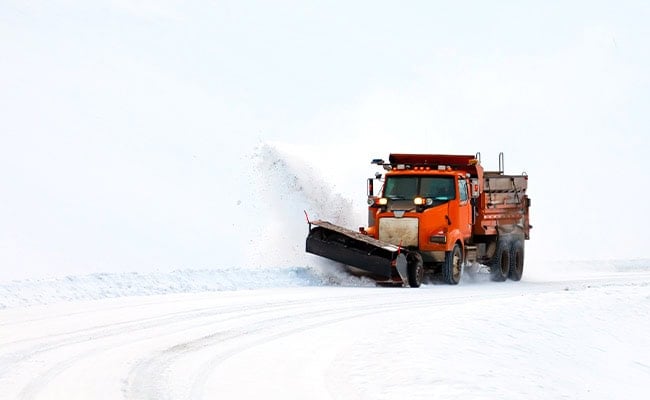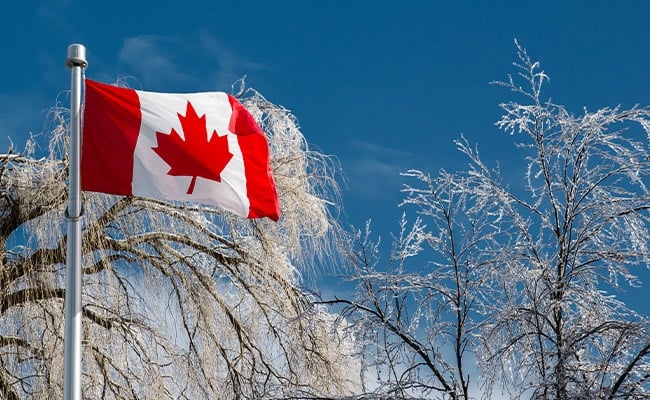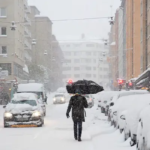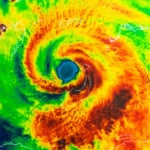Review Of Canadian Winter Weather 2023-2024

Last year, Canada had its warmest winter on record by a wide margin, 1.1°C warmer than the previous record set in 2009-2010, based on preliminary data from Environment Canada.
The December 2023–February 2024 global surface temperature was the warmest December–February period in the 175-year record, 1.36°C above the 20th-century average of 12.1°C. The past ten December–February periods have ranked among the twelve warmest such periods on record.
The North America and Greenland snow cover extent was 15.92 million square kilometers, which was 1.27 million square kilometers below the 1991–2020 average. This ranked as the third smallest snow cover extent for North America on record, contrasting sharply with the previous winter’s slightly above-average extent.
In Canada, the AAFC (Agriculture and AgriFood Canada) reported that abnormally dry to drought conditions affected 81% of the country’s agricultural landscape.
Farmers’ Almanac Winter 2023-2024 Forecast Accuracy (Canada)
Among all of the winter anomalies last year, the following Farmers’ Almanac predictions were on point for Canada:
- December 16-19, 2023: Our forecast called for stormy weather for Quebec and the Maritimes. On December 18, heavy rains fell across Quebec; at least 68mm had fallen in Montreal which was a record for a single day of rainfall in December. In Nova Scotia, periods of heavy rains were accompanied by strong winds.
- January 12-15, 2024: We “red flagged” these dates warning that a surge of frigid arctic air would spread from the Prairies eastward into Ontario and Quebec, and bring some heavy rains and snows. During this time frame an arctic blast indeed brought rains, snow falls, and bitter cold. Ontario was plagued by numerous power outages.
- January 28-31, 2024: Our forecast for a fast-moving disturbance to affect the Maritimes, bringing gusty winds and a light-to-moderate snowfall came true. A nor’easter that brought up to 15 cm of snow accompanied by strong winds.
- February 8-15, 2024: We warned that a coastal storm which could bring a round of snowy weather for the Maritimes and Newfoundland, with up to 30 cm was possible. A storm did occur, brining quite a bit of snowfall—as much as 37 cm in Nova Scotia and up to 60 cm in Newfoundland.

- February 24- 29, 2024: Our forecast called for rain and wet snow over higher terrain in British Columbia, and on the 26th, that’s exactly what transpired. Also, during this same time frame, we signaled stormy conditions with more rain and snow, along with gusty winds for Quebec and the Maritimes. As Leap Day arrived, a harsh cold front barreled on through, producing heavy rains (and even a rumble of thunder for a few places), accompanied by roaring winds and a quick change to snow accompanied by a flash freeze. As a consequence, many power outages resulted, especially in Quebec.
Any questions? Contact [email protected]
- March 2024: We warned of a significant storm developing along the Southeast US and depositing rain and snow as it moved north. And indeed, Spring was put on pause in Quebec and Atlantic Canada as a potent storm with more wintry aspects trekked through the region, bringing enough amounts of precipitation and wind gusts to be rather disruptive. Parts of Quebec and New Brunswick saw 40 cm of snowfall or more, while PEI and Nova Scotia and were hit with 40-60 mm of rainfall.
Looking Ahead
When the first edition of the Farmers’ Almanac appeared in 1818, people relied heavily on nature’s cues to forecast the weather. Deeply connected to the outdoors through farming, fishing, and daily life, they observed how specific clouds signaled approaching storms. Weather forecasts were inaccessible through news broadcasts or apps. Instead, people turned to the trusted Farmers’ Almanac, offering long-range weather predictions decades before the National Weather Service existed.
While we’ve advanced significantly since then, the Farmers’ Almanac remains a cornerstone for yearly weather outlooks. Our proprietary formula adapts to ever-changing conditions, providing valuable insights ahead of any other source. However, we humbly acknowledge that nature is the ultimate authority on weather.

Caleb Weatherbee
Caleb Weatherbee is the official forecaster for the Farmers' Almanac. His name is actually a pseudonym that has been passed down through generations of Almanac prognosticators and has been used to conceal the true identity of the men and women behind our predictions.








nice